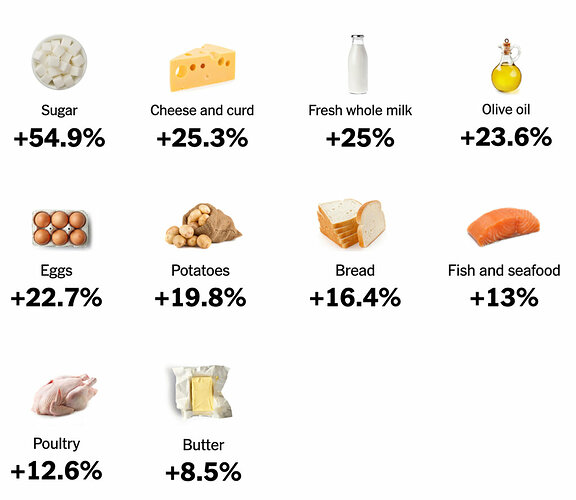Often thought about it but it would take days to get the structure heated.
Of course years ago with the oven in daily use it would always have been warm thanks to the thick covering of sand.
Blooming hard work. I always find it strangely moving when I see, on La meilleure boulangerie de France, someone who has been doing it since 15.
Yes blooming hard work.
Just as hard is being a chef and standing, cooking in a hot kitchen for 12 hrs per day.
Most people in catering are not well paid.
I speak to my village baker regularly because he delivers daily baguettes to my workplace too, he says his electric bill has had a two and a half fold increase.
I’ve seen some people ask for a baguette to be sliced, immediately easy to freeze then and take out the slices you want.
Nasty after being frozen unless its those big wide ones from Super U that do freeze well not having the centre full of holes. No, a baguette should be eaten fresh and then replaced for the evening if gone hard or floppy according to my old neighbours. I stopped eating bread last year so much and have lost weight!
OK for a month or so. Any longer and it dries out terribly ![]()
I notice that my neighbours buy several baguettes (and other loaves etc) every Thursday when the baker parks his van in the village. Some will be eaten today, but the rest will be frozen for later.
Seems the frozen baguette is popped into a hot oven for xyz minutes… and it is “just like new” and delicious.
We eat ours on the day… I can’t see the point in heating the oven… different if something else is cooking at the same time…
Just a side note, my baker also supplies our local superU with all their baguettes.
@barbara_deane1 can probably testify to that after all her years in restaurants
Yes she can.
I know that some cannot jump the paywall for this but it is a good article, so I paste bits for you all
It is the most basic of staple food items: sliced white bread. In Britain, the average price of a loaf was 28 percent higher in April, at 1.39 pounds, or $1.72, than it was a year earlier.
In Italy, the price of spaghetti and other pasta, a fixture of the Italian diet, has risen nearly 17 percent from the year before. In Germany, the European Union’s largest economy, cheese prices are nearly 40 percent higher than a year ago, and potatoes cost 14 percent more.
Throughout the European Union, consumer food prices were on average nearly 17 percent higher in April than a year earlier, a slight slowdown from the previous month, which set the fastest pace of growth in over two and a half decades. The situation is worse in Britain than in its Western European neighbors: Food and nonalcoholic drink prices were 19 percent higher, the quickest pace of annual food inflation in more than 45 years. By comparison, the annual rate of U.S. food inflation was 7.7 percent.
Is profiteering keeping prices high?
Suspicions are growing among consumers, trade unions and some economists that inflation could be kept needlessly high by companies raising prices above their costs to protect profit margins. The European Central Bank said that at the end of last year, corporate profits were contributing to domestic inflation as much as wage growth, but it did not say if any industries had made excessive profits.
Economists at Allianz, the German insurer and asset manager, estimate that 10 to 20 percent of food inflation in Europe can be attributed to profiteering. “There is part of the food price inflation that we see which is not explainable, easily,” said Ludovic Subran, the chief economist at Allianz.
But the lack of detailed data about corporate profits and supply chains has caused a rift in economic opinions.
Some economists and food retailers have pointed fingers at big global food producers, which have sustained double-digit profit margins while raising prices. In April, the Swiss giant Nestlé said it expected its profit margin this year to be about the same as it was last year, about 17 percent, while it reported raising prices almost 10 percent in the first quarter.
Even taking into account expenses like transport and accounting for pricing lags from farms to shelves, Mr. Subran said he would have expected food inflation to come down by now.
In Britain, some economists are telling a different story. Michael Saunders, an economist at Oxford Economics and former rate-setter at the Bank of England, said in a note to clients in May that “greedflation” was not the culprit. Most of the increase in inflation reflects the higher cost of energy and other commodities, he said.
Rather than rising, total profits for nonfinancial companies in Britain, excluding the oil and gas industry, have fallen over the past year, he said.
Britain’s competition regulator also said that it hadn’t seen evidence of competition concerns in the grocery sector, but that it was stepping up its investigation into “cost of living pressures.”
DISGUSTING
![]()
While I find it hard to disagree, I do get the occasional craving for toasted, sliced white bread.
This actually made me laugh a little. Every country has its own poverty foods, and considering one or two well known ‘classics’ , a bit of Mothers Pride doesn’t seem at all bad.
Especially the proper stuff ![]()
![]()

The only use I’ve found for sliced white bread in years is summer pudding…
TBH I’ve not eaten it in probably 30 years, but would not object strongly to it.
Taste it and see if you change your mind ![]()
Now you’re talking. That’s a must buy when I visit my parents.
